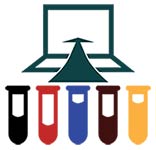On this page...

Danielle Carrick, PhD, MHS
Program Director, Genomic Epidemiology Branch
carrick@mail.nih.gov
Best Practices and Expectations for Biospecimen Research
NCI Resources

- Best Practices and Standard Operating Procedures for Biospecimens
The Biorepositories and Biospecimen Research Branch (BBRB) in NCI's Division of Cancer Treatment and Diagnosis is active in development and improvement of policy for biospecimen resource management and collection, supports research informing best practices, and more.- Best Practices for Biospecimen Resources
The Best Practices outline the operational, technical, ethical, legal and policy best practices for NCI-supported biospecimen resources - Examples of Standard Operating Procedures
View examples of Standard Operating Procedures (SOPs) for various biobanking practices associated with the NIH Genotype-Tissue Expression (GTex) project and the Biospecimen Preanalytical Variables program
- Best Practices for Biospecimen Resources
- Examples of Biospecimen Sharing Policies and Request Forms from NCI-Funded Population-Based Studies
For studies that are interested in implementing biospecimen sharing, the following are a few examples of NCI-supported studies with well-defined biospecimen sharing forms and policies.- Colon Cancer Family Registry (C-CFR)
- Nurses’ Health Study (NHS-1 and NHS-II)
- Prostate, Lung, Colorectal and Ovarian (PLCO) Cancer Screening Trial
- Other examples of policies and request forms for cohort studies are available through the Cancer Epidemiology Descriptive Cohort Database.
-
Suggested Elements of the Resource Sharing Plan Pertaining to Biospecimen Management and Sharing
As stated in section B.1.5.4. of the NCI Best Practices for Biospecimen Resources, biospecimen utilization is the process of biospecimen management in an effort to promote collaboration and timely research.
The Epidemiology and Genomics Research Program (EGRP) encourages investigators to consider the long-term trajectory of resource sharing and NIH investments when developing the Resource Sharing Plan. A description of biospecimen management and sharing in the Resource Sharing Plan section of the grant application that provides complementary information to the Data Management and Sharing plan is strongly encouraged. Read more about the suggested Resource Sharing Plan elements for biospecimen management and sharing.
NIH Resources
- Informed Consent for Research with Data and Biospecimens: Points to Consider and Sample Language for Future Use and/or Sharing
This document is intended to provide sample language to investigators and IRBs when developing consent for secondary use of data/biospecimens.
Other Non-Government Resources
- International Society for Biological and Environmental Repositories (ISBER)

ISBER provides several resources for biobanking and biospecimens, including the ISBER best practices and a tool for evaluating adherence to these practices.
Potential Sources of Biospecimens for Investigators
This list provides links to biospecimen resources that may be of interest to cancer epidemiologists, but is not exhaustive. Access to resources is dependent on procedures outlined for each individual study or resource. Availability may depend on suitability of proposed research, collaboration with study investigators, ethical considerations, approval from a steering committee, or availability of samples to perform study.
NCI Resources
- Cancer Epidemiology Descriptive Cohort Database (CEDCD)
The goal of this searchable database is to facilitate collaboration and highlight research opportunities within existing cohort studies. The CEDCD contains descriptive information about cohort studies following groups of people over time for cancer incidence, mortality, and other health outcomes. In addition to general study information, the CEDCD also includes biospecimen information for the studies. - NCI Specimen Resource Locator (SRL)
The SRL is a biospecimen resource database designed to help researchers locate resources that may have the samples needed for their investigational use. This publicly searchable database includes information about biospecimen banks and sample procurement services. The specimens and samples come from non-commercial, either NCI or non-NCI-funded resources. Investigators can search the database and gain access to thousands of specimens of various tumor, organ, and preservation methods. - Funded DCCPS Projects Involving Biospecimens
NCI DCCPS supports a variety of research involving biospecimens. To learn more about the types of biospecimens being collected and used for a variety of epidemiology research questions, view a list of DCCPS's active grants collecting the following biospecimens: - Clinical Proteomic Tumor Analysis Consortium
The Clinical Proteomic Technologies for Cancer Initiative, launched in 2006, was developed to address the pre-analytical and analytical variability issues that are major barriers to the field of proteomics. NCI’s Specimen Resource Locator has hundreds of cancer samples previously collected by Clinical Proteomics Tumor Analysis Consortium (CPTAC) that are now available to the public. - NCI Cooperative Human Tissue Network
 (CHTN)
(CHTN)
The CHTN is a resource that provides human malignant, benign, diseased, and normal biospecimens to the scientific community for research purposes. The CHTN is a prospective human biospecimen procurement resource funded by the NCI since 1987. These samples are available in a variety of preservation methods including fresh, frozen, paraffin embedded blocks, or histological slides. - NCTN Navigator

The NCTN Navigator is a publicly searchable database of specimens from completed NCTN Phase 3 clinical trials. - SEER-Linked Virtual Tissue Repository (VTR) Program
The VTR Program uses Surveillance, Epidemiology, and End Results (SEER) cancer registries as honest brokers to supply investigators with deidentified, linked formalin-fixed, paraffin-embedded tissue, clinical and demographic data, pathology reports, and/or digital whole slide images for secondary use in cancer research. - NCI Resources for Researchers
Resources for Researchers is a directory of NCI-supported tools and services for cancer researchers. Most resources are free of cost and available to anyone. Researchers can search for “Biospecimen” to find databases and tools that include biospecimens.
NIH Resources
- Eunice Kennedy Shriver National Institute of Child Health and Human Development (NICHD)
- NICHD Data and Specimen Hub (DASH)
A centralized resource that allows researchers to share and access de-identified data from studies funded by NICHD. DASH also serves as a portal for requesting biospecimens from selected DASH studies.
- NICHD Data and Specimen Hub (DASH)
- National Heart, Lung, and Blood Institute (NHLBI)
- Biological Specimen and Data Repository Information Coordinating Center (BioLINCC)
Learn about NHLBI open collections, request data and/or biospecimens, and register study information.
- Biological Specimen and Data Repository Information Coordinating Center (BioLINCC)
- National Human Genome Research Institute (NHGRI)
- Electronic Medical Records and Genomics (eMERGE) Network
The primary goal of the eMERGE Network is to develop, disseminate, and apply approaches to research that combine biorepositories with electronic medical record (EMR) systems for genomic discovery and genomic medicine implementation research. To facilitate collaboration, external institutions may apply for affiliate membership.
- Electronic Medical Records and Genomics (eMERGE) Network
- National Institute of Diabetes and Digestive and Kidney Diseases (NIDDK)
- NIDDK Central Repository
Searchable database for NIDDK data and samples.
- NIDDK Central Repository
- National Institute of Environmental Health Sciences (NIEHS)
- Human Health Exposure Analysis Resource (HHEAR)

HHEAR provides researchers access to high-quality, exposure-assessment services including, state of the art laboratory analysis of biological and environmental samples, statistical analysis, and expert consultation on exposure analysis, study design, and data analysis and interpretation. - EpiShare
This is a web-based platform for sharing biospecimens and/or datasets with the research community. EpiShare provides a central location for researchers to see summaries of NIEHS Epidemiology Branch studies and specimen inventories, submit requests, and track all requestor correspondence.
- Human Health Exposure Analysis Resource (HHEAR)
- National Institutes of Health Common Fund Projects
- Genotype-Tissue Expression (GTEx) Project
This data resource and tissue bank was created to study the relationship between genetic variation and gene expression in multiple human tissues.
- Genotype-Tissue Expression (GTEx) Project
- Resources Developed by Multiple NIH Institutes and Centers
- NeuroBioBank
This is a national resource for investigators utilizing post-mortem brain tissue and related biospecimens for research to understand conditions of the nervous system.
- NeuroBioBank
Other Resources
- International Repository Locator
 (IRL)
(IRL)
The IRL is an initiative by the International Society for Biological and Environmental Repositories to help investigators locate biospecimen and data repositories by developing a directory of repository information that can be searched online.